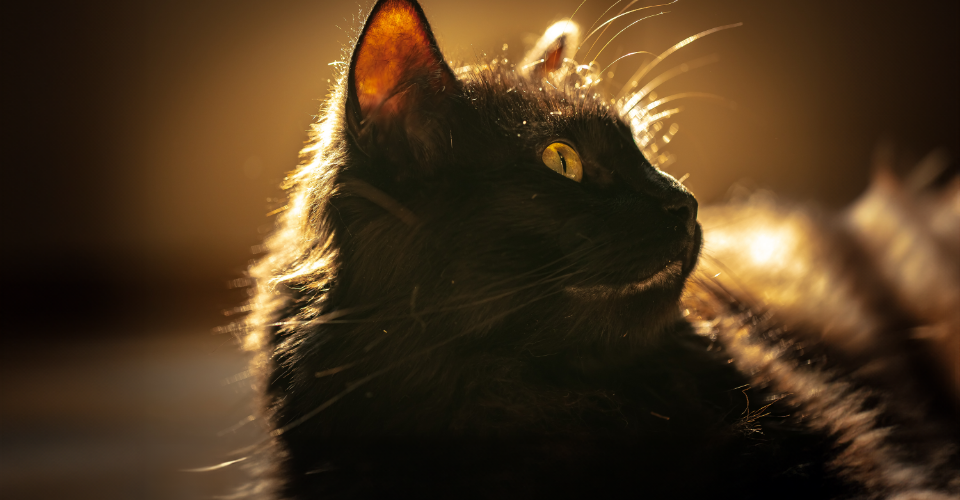Animals have always fascinated humans, but sometimes that fascination turns into fear. From whispers of witchcraft to omens of bad luck, myths about black cats and other creatures have been passed down through generations. But here’s the truth: behind the mystery is simply an animal deserving love, care, and protection.
What Is the Superstition About Black Cats?
Black cats have one of the most infamous reputations in folklore. They’re the centre of countless tales of luck, both good and bad.
In medieval Europe, black cats were linked to witchcraft. People believed they were witches’ companions or even witches transformed into animal form. As these ideas spread, so did fear of the black cat. In parts of Africa, some traditions carried similar warnings, while others viewed them as protective symbols. In ancient Egypt, black cats were deeply respected and associated with the goddess Bastet, a protector of homes and families.
Why Are People Scared of Black Cats?
The biggest reason is simple: fear of the unknown. Their dark coats made them harder to see at night, fuelling eerie associations.
Separating Truth from Folklore:
| Myth | Fact |
| A black cat crossing your path means bad luck. | In many cultures, it’s actually a sign of protection. |
| Black cats are tied to witchcraft and evil spirits. | They’re just as cuddly and playful as any other cat. |
| Black cats are less friendly than other cats. | Personality is shaped by the individual cat, not its coat colour. |
| Black cats are harder to photograph. | With the right lighting, their glossy coats look stunning in photos. |
| Black cats don’t get adopted as often. | Shelters note this trend, but awareness campaigns are helping more black cats find loving homes. |
Often, it’s less about the animal and more about stories people grew up with.
RELATED: REASONS TO LOVE BLACK CATS: PERSONALITY & TRAITS
Other Animal Superstitions You May Have Heard Of
Black cats may take centre stage, but plenty of animals have their own myths.
Seeing an Owl at Night Superstition
Across many cultures, an owl hooting at night was seen as an omen of death or bad news. Yet today, we know owls play a vital role in ecosystems by keeping rodent populations in check.
Snake in the House Superstition
A snake slithering indoors has long been seen as an omen, sometimes of misfortune, sometimes of transformation. While it might startle you, many snakes are harmless and even beneficial for controlling pests.
Spider Superstitions and Omens
Spiders often feature in folklore around wealth or misfortune. In some cultures, seeing a spider was believed to bring money, while others linked them to danger. The truth? Spiders are incredible little critters.
RELATED: 7 FASCINATING BIRD SUPERSTITIONS AND THEIR HIDDEN MEANINGS
Facts Over Fear: Why It’s Time to Let Go of the Myths
Superstitions about black cats and other creatures can lead to fear and mistreatment of innocent animals. By spreading facts instead of fear, we can protect them and give them the respect they deserve.
At dotsure.co.za, we believe pets deserve love, care, and protection. If you’d like to give your pet the safety they deserve, contact us today!



